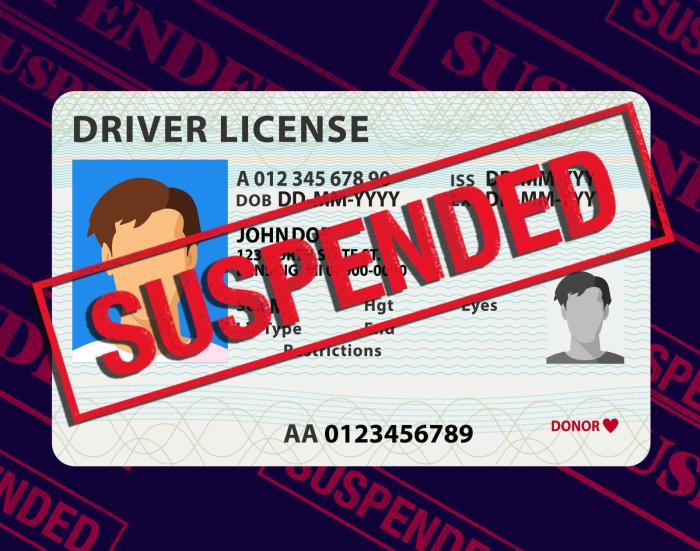If a driver refuses a chemical test what happens – If a driver refuses a chemical test, the consequences can be significant. This refusal triggers a series of legal, administrative, medical, and ethical implications that can impact the driver’s life in various ways. This article delves into the multifaceted consequences of refusing a chemical test, providing a comprehensive overview of the potential outcomes and considerations.
Refusing a chemical test is a serious matter that can have far-reaching effects. Understanding the consequences of this decision is crucial for drivers to make informed choices and protect their rights.
Legal Consequences of Refusing a Chemical Test: If A Driver Refuses A Chemical Test What Happens

Refusing a chemical test can have serious legal consequences for drivers. Depending on the jurisdiction, penalties may include:
Fines
Drivers may be subject to substantial fines, ranging from hundreds to thousands of dollars.
License Suspensions, If a driver refuses a chemical test what happens
Refusal typically results in an automatic license suspension, which can last for months or even years.
Other Penalties
Additional penalties may include vehicle impoundment, community service, or even jail time in some cases.
Insurance Premiums and Driving Privileges
Refusal can lead to increased insurance premiums and make it more difficult to obtain driving privileges in the future.
Administrative Procedures Following Refusal

After a driver refuses a chemical test, the following administrative procedures typically occur:
Arrest and Booking
The driver is arrested and taken to a police station for booking.
Release
The driver may be released on bail or their own recognizance pending a hearing.
Hearings and Appeals
- The driver may have the opportunity to attend a hearing to contest the refusal and present evidence.
- If the refusal is upheld, the driver may be able to appeal the decision.
Medical Implications of Refusing a Chemical Test

Refusing a chemical test can have medical implications, including:
Accuracy of Blood Alcohol Concentration (BAC) Measurements
Refusal can delay or prevent accurate measurement of the driver’s BAC, which can affect the outcome of any legal proceedings.
Alternative Methods
- If a chemical test is refused, alternative methods may be used to determine BAC, such as breathalyzers or urine tests.
- These alternative methods may not be as accurate or reliable as chemical tests.
Ethical Considerations Surrounding Refusal
The refusal of a chemical test raises ethical considerations, including:
Public Safety
Refusal can put the public at risk by allowing impaired drivers to remain on the road.
Individual Rights
Refusal can be seen as an infringement on an individual’s right to privacy and due process.
Bias and Discrimination
There is concern that chemical test laws may be enforced in a biased or discriminatory manner, targeting certain groups of drivers.
FAQ Insights
What are the legal consequences of refusing a chemical test?
Refusing a chemical test can result in fines, license suspension, and even jail time. The specific penalties vary by jurisdiction.
What are the administrative procedures that follow a driver’s refusal of a chemical test?
After refusing a chemical test, the driver will be arrested and booked. They may be released on bail or held in jail until their court date. The driver may also have the opportunity to request a hearing to contest the refusal.
What are the medical implications of refusing a chemical test?
Refusing a chemical test can make it more difficult to determine the driver’s blood alcohol concentration (BAC). This can lead to inaccurate BAC measurements and potentially affect the outcome of the case.
What are the ethical considerations surrounding a driver’s refusal of a chemical test?
Refusing a chemical test raises ethical concerns about protecting the public from impaired drivers while respecting individual rights. There is also the potential for bias or discrimination in the enforcement of chemical test laws.